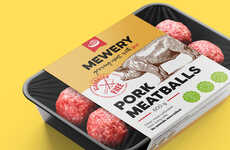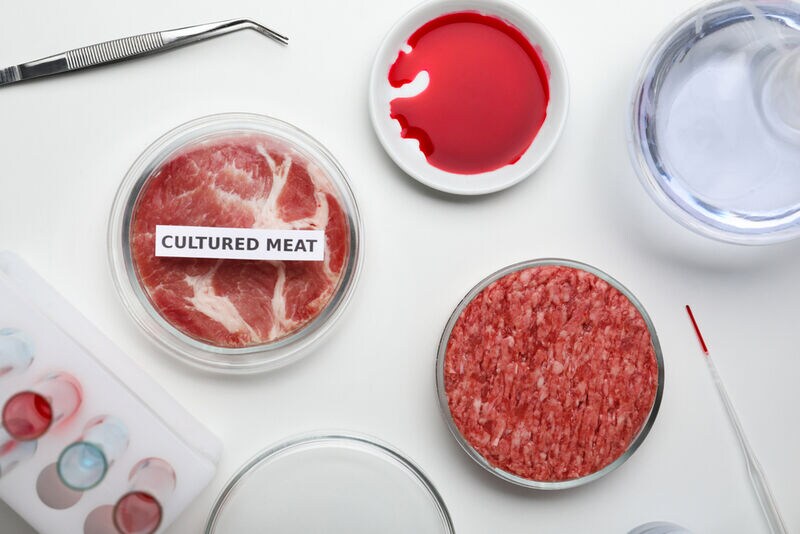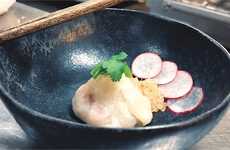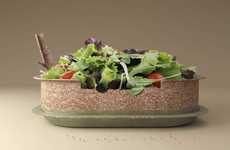
Fork & Goode is Creating Real Cell-Based Animal Products
Colin Smith — April 27, 2022 — Eco
References: forkandgoode & 3dprint
'Fork & Goode' is a United States-based startup working to create sustainable, cell-cultured meats that are less harmful to both wildlife and the environment. Two additional notable qualities of cell-cultured meat as opposed to plant-based meats are the fact that cell-cultured meats consume very little natural resources, and cell-cultured meats replicate real animal meat almost identically.
Currently, Fork & Goode is focusing on creating alternative pork products with cells sourced from local New Jersey pigs. These cells are then grown in a lab and engineered to create genuine pork meat. This meat is harvested and prepared by a set of chefs who ensure that the resulting Fork & Goode products are of the highest quality and are near indistinguishable from real animal pork. Fork & Goode is currently looking to finalize, and subsequently scale, its cultured meats.
Image Credit: Fork & Goode
Currently, Fork & Goode is focusing on creating alternative pork products with cells sourced from local New Jersey pigs. These cells are then grown in a lab and engineered to create genuine pork meat. This meat is harvested and prepared by a set of chefs who ensure that the resulting Fork & Goode products are of the highest quality and are near indistinguishable from real animal pork. Fork & Goode is currently looking to finalize, and subsequently scale, its cultured meats.
Image Credit: Fork & Goode
Trend Themes
1. Cell-cultured Meat - Developing and scaling sustainable, real meat products created through cell-culturing technology.
2. Alternative Animal Products - Creating animal-based products through innovative and sustainable production methods for a more environmentally conscious market.
3. Lab-grown Meat Industry - Establishing an emerging industry focused on cell-culturing technology, with potential disruptive innovation opportunities for traditional livestock and plant-based meat industries.
Industry Implications
1. Agriculture - Developing innovative and sustainable animal farming practices that can reduce environmental impact and better meet the needs of an environmentally-conscious market.
2. Food Processing - Creating advanced meat processing technologies that can produce real meat without the need for traditional livestock.
3. Biotechnology - Exploring the use of lab-grown animal cells to create sustainable food products with potential applications beyond traditional meat production.
2.4
Score
Popularity
Activity
Freshness
























